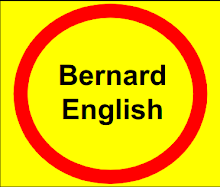FROM
The Freeman: Ideas on Liberty - September 2000 Vol. 50 No. 9 "The Colonial Origins of American Liberty" By Thomas E. Woods, Jr.
There was, of course, a great deal more than mutual antagonism that gave impetus to the tradition of American liberty. What characterized the American colonists, for the most part was, first, sheer practicality—they were practical men, not schemers—and second, an unswerving commitment to self-government. These two qualities are not easily separated; when, for example, the states cautiously ratified the federal Constitution in the 1780s, their insistence that it remain a strictly limited union was based partly on their unwillingness to relinquish major prerogatives of self-government, and partly on their lack of interest in making a confederation an end in itself, or a self-justifying goal, as Clyde Wilson put it. The American revolutionaries were not like the French, the most radical of whom sought to extirpate the smallest remnant of pre-revolutionary France from historical memory. The Americans had no intention of anticipating the French example by abandoning the Gregorian calendar and beginning anew with the Year I in commemoration of the establishment of the new republic. The American union was simply a practical arrangement, brought into being to accomplish specific and finite objectives.I should mention that there are others who disagree with this assessment and believe the early colonists were in fact true revolutionaries. Here is a somewhat different view of the colonists' attitude towards the struggle with England from Lord Acton, first printed in 1910, in "The Influence of America," found in Essays in the History of Liberty:
They resolved to give up everything, not to escape from the actual oppression, but to honour a precept of unwritten law. That was the transatlantic discovery in the theory of political duty, the light that came over the ocean. It represented liberty not as a comparative release from tyranny, but as a thing so divine that the existence of society must be staked to prevent even the least constructive infraction of sovereign right.
and . . .
The contest was plainly a contest of principle, and was conducted entirely on principle by both parties. "The amount of taxes proposed to be raised," said Marshall, the greatest of constitutional lawyers, "was too inconsequential to interest the people of either country."

